Author: Lilian Kaivilu | Producer: Dorothy Okemo
In our blog series “Four tales from Narok County, Kenya” we put the spotlight on the healthcare situation of people living in this district, with a special focus on sexual and reproductive health (SRH). Where there’s little or no money for health, a lonely nurse struggles to serve the 5,000 people in his district and a volunteer with a background in tourism steps in to educate communities on SRH. Without financial support, youth centres have to close leaving adolescents with sexually transmitted diseases to seek help at neighbouring counties’ facilities. Facing a lack of education on sexuality and contraceptives, many young girls are condemned to a life of unprepared motherhood; forced to abandon their education all together. But among all these challenges there are people who fight for better knowledge of SRH Rights and improved access to medicines.
In our first tale from Narok , we visited Robert Magero, the nursing officer at Etereti Dispensary in Narok South. As the only health worker in the facility he faces many daily challenges. Mark Lari Letoluo, a community health worker in Ololung’a, can relate to this. He was devastated by the situation of pregnant women and mothers in his community and took a course, organised by the county government, on community health to make a change.
Lack of a delivery couch for pregnant mothers is not uncommon in some hospitals in parts of Kenya. Equally common in Ololung’a area in Narok County, are mothers giving birth on their way to the health facility.
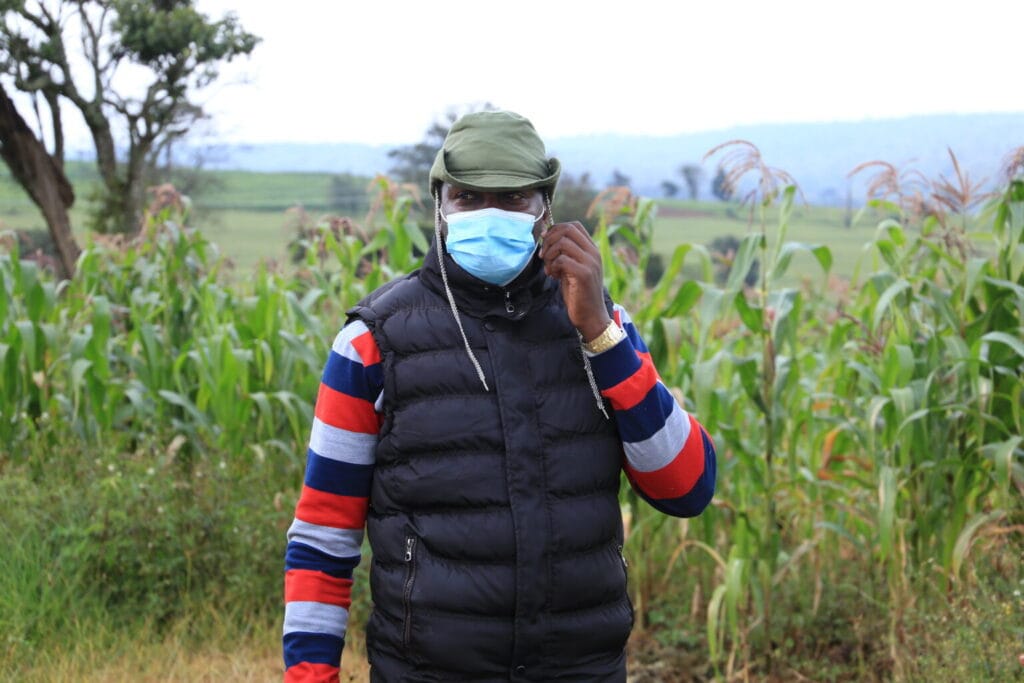
Mark Lari Letoluo is a community health worker in Ololung’a. Born and raised here, Mark says this is a familiar story: “There was a day a pregnant mother delivered on her way to the hospital. The roads were impassable. Only a bodaboda, a motorcycle serving as a taxi, could help. Despite the heavy rains that day, the woman’s family had to opt for this means of transport. We watched helplessly as the new mother struggled to sit on the bike, moments after giving birth,” recounts Mark.
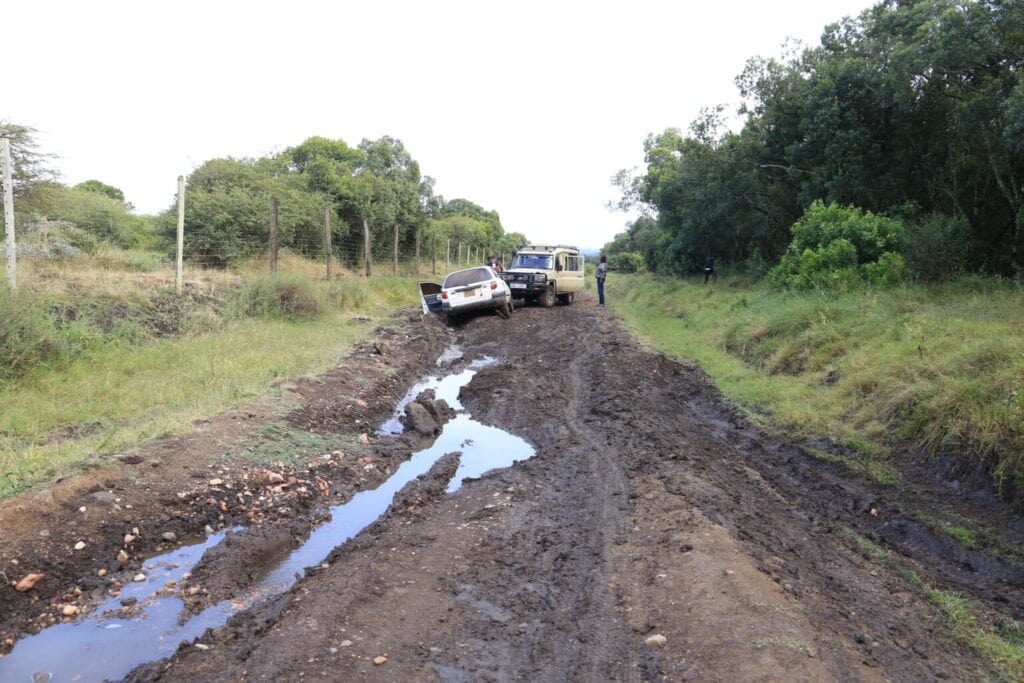
This is the helpless picture for many mothers in this area and other parts of the county where poor road infrastructure is a challenge. The incident inspired Mark to find a solution to what he described as ‘immense suffering for women’ in his community. He has since volunteered in various ways in the community. In early 2020, Mark undertook a standardised course by the county government on community health. In Kenya, community health workers are Level 1 healthcare providers, who primarily work in the community and are trained to provide basic services like immunisation or family planning methods. They are also the link between the community and the health facilities and often do referrals. Depending on the health policies in each county, some counties have put their health workers on a monthly stipend (ranging between $ 20 – 30 a month). In some cases, this stipend is supported by NGOs while in other instances counties have put this in their annual budgets. Graduating from the course, Mark’s hope was to directly take part in the transformation of his community, particularly in regard to maternal and adolescent health.
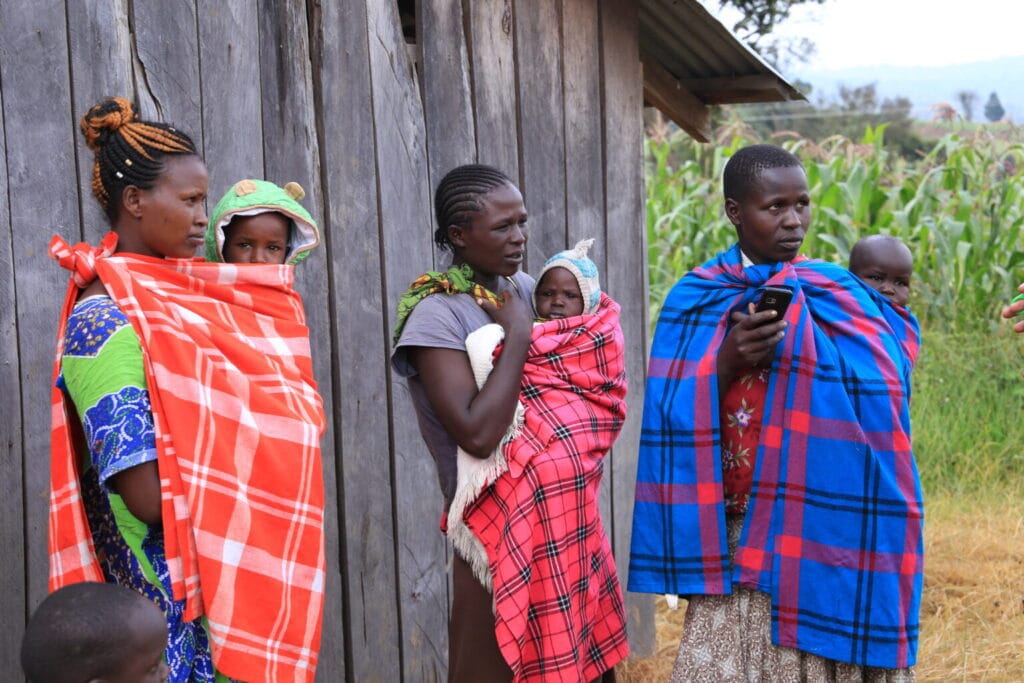
Maternal and newborn health management is however still a challenge in Mark’s community. The majority of women, he says, opt to give birth at home. “The bigger challenge, however, is preparing to get pregnant and getting the right supplements for the mothers until they give birth,” he adds. He emphasises the need for proper post-natal care, such as ensuring that women are exclusively breastfeeding up to six months after delivery, if possible.
According to Mark, getting a health worker or a patient assistant who can communicate to the mothers in their local language will go a long way in enabling them to be better informed about their health rights.
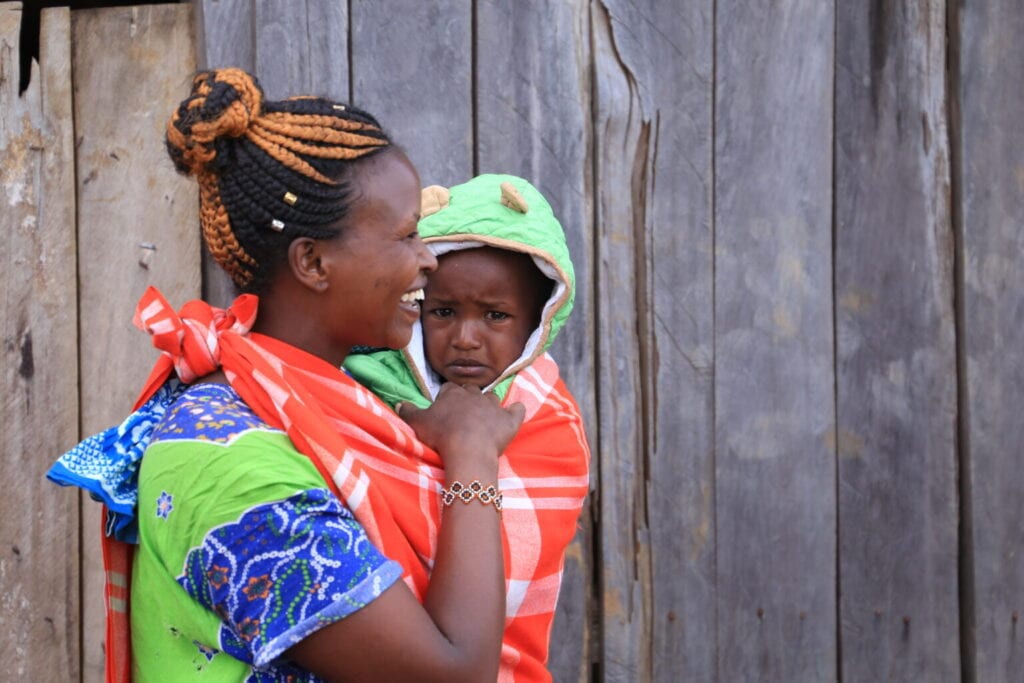
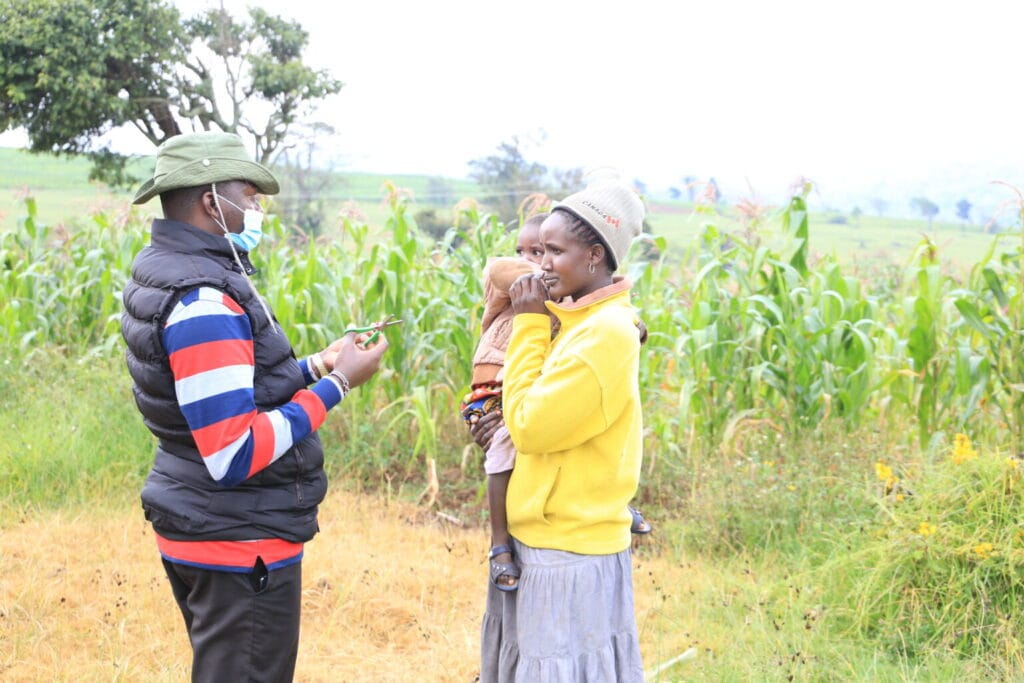
Being a member of the community and speaking the local language helps Mark to connect with the mothers.
On a Tuesday afternoon, Mark resumes his home visits in Ololung’a area in Narok County. This is his daily routine. A trained tourism professional, Mark has been instrumental in empowering young people with sexual and reproductive health and rights education, sanitation, and is now actively involved in COVID-19 messaging as a health volunteer.
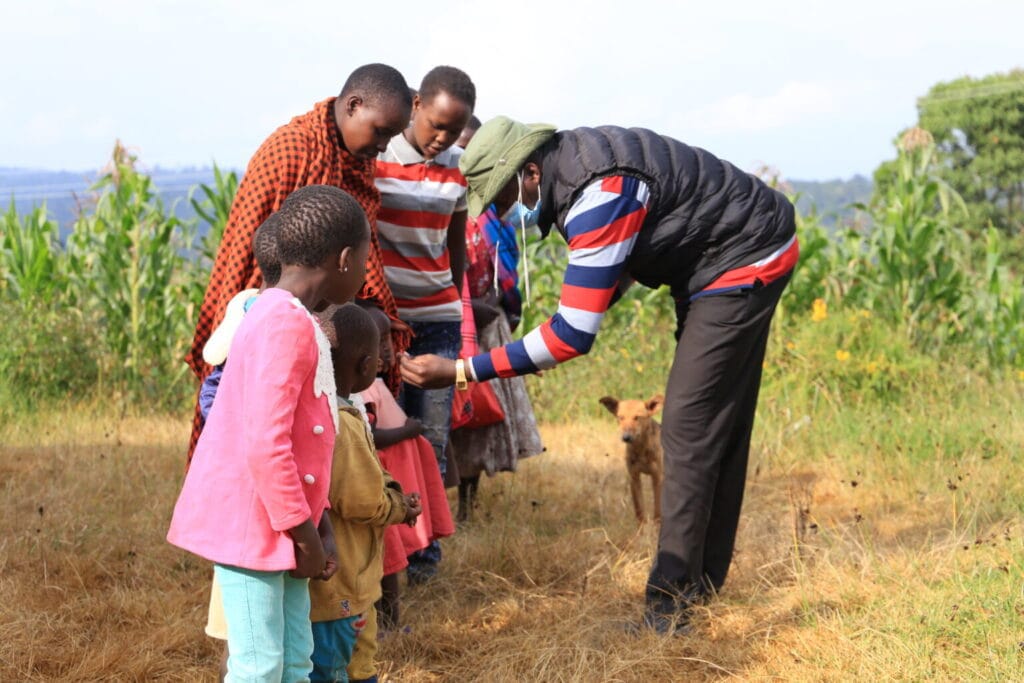
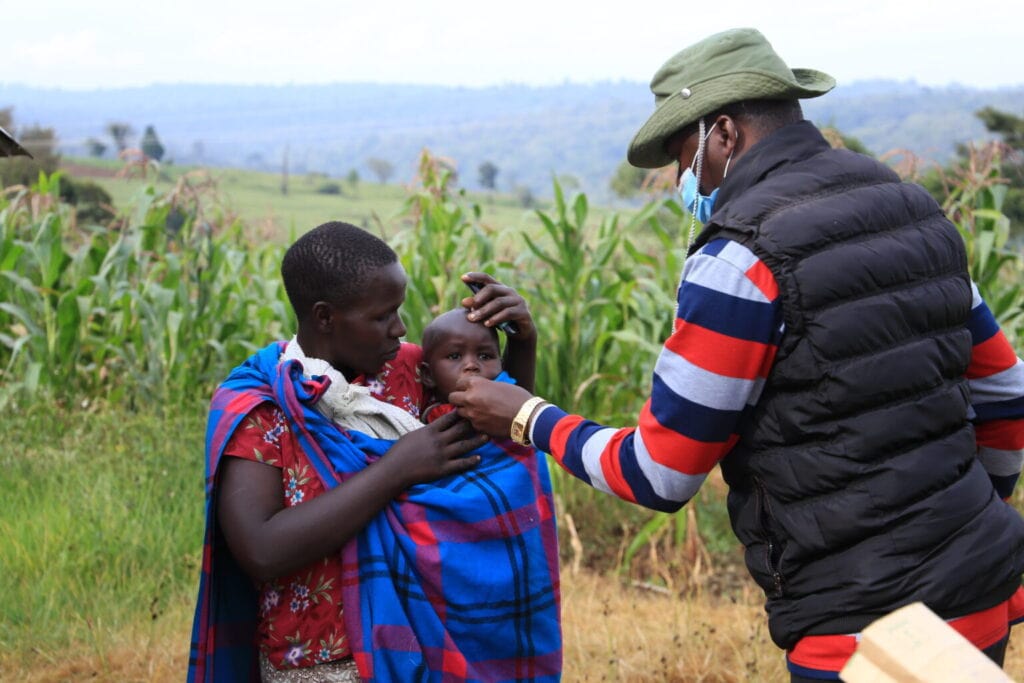
Mark, a community health volunteer, administers Vitamin A supplements and deworming tablets to children in Etereti village in Narok South, Narok County.
On an ordinary day, he reaches over ten homes. His work ranges from routine immunisation (e.g., vaccines against tubercolosis or mumps, measles, and rubella) to reproductive health talks with young people in the area. “I have always loved people. Here at home, our community is very connected. We do everything as a community. For instance, if a child falls sick, we all have to contribute for the child’s medical bills whether you belong to that family or not,” he says. This exposed Mark firsthand to the needs of the community.
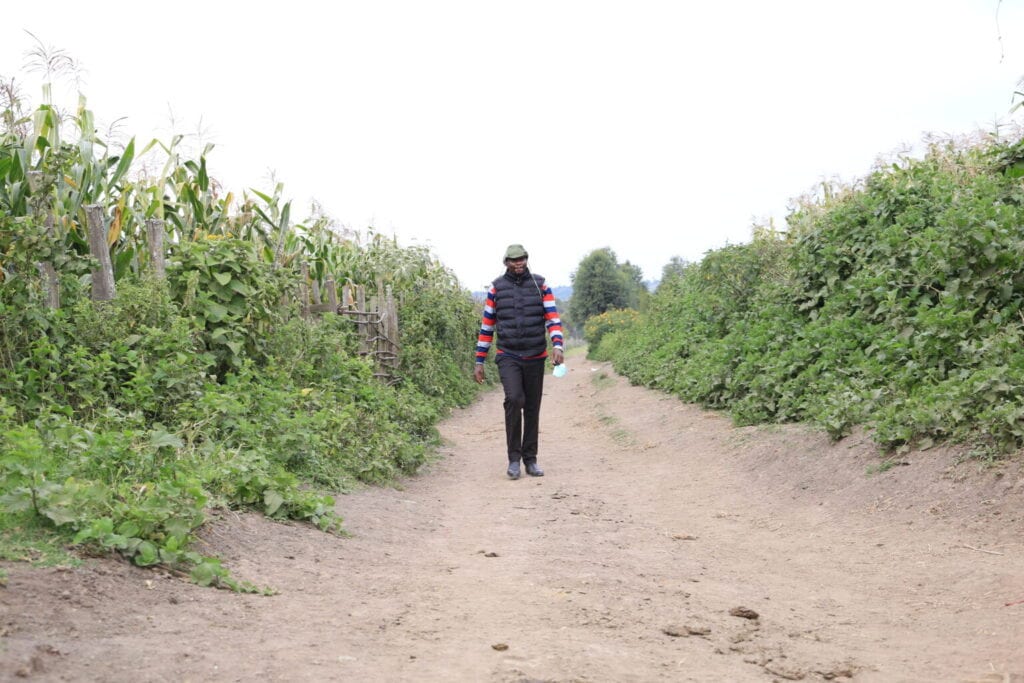
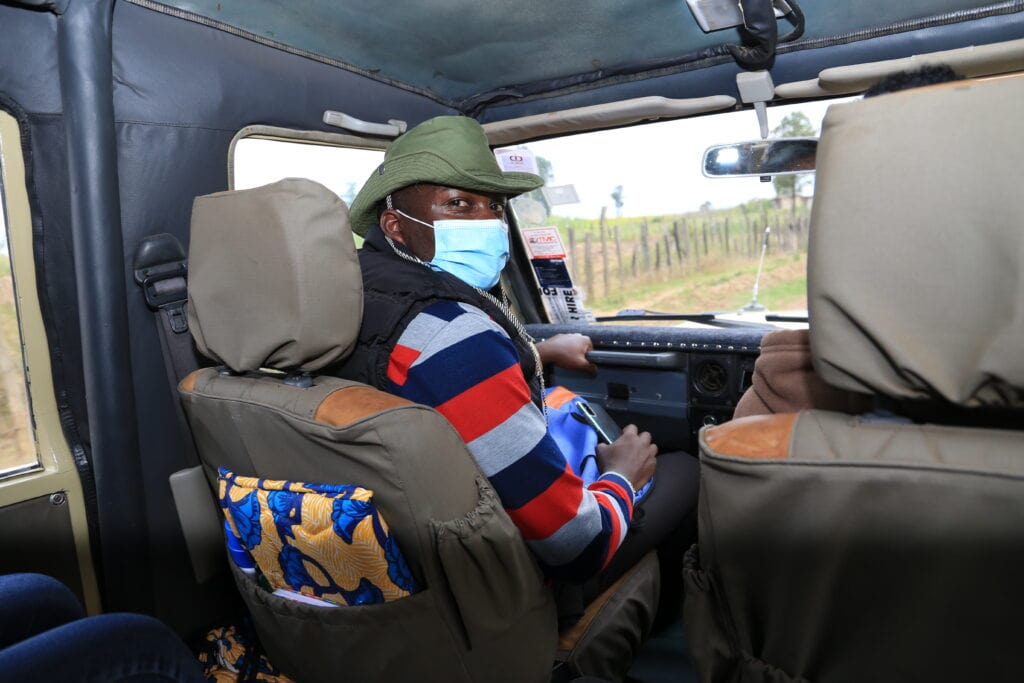
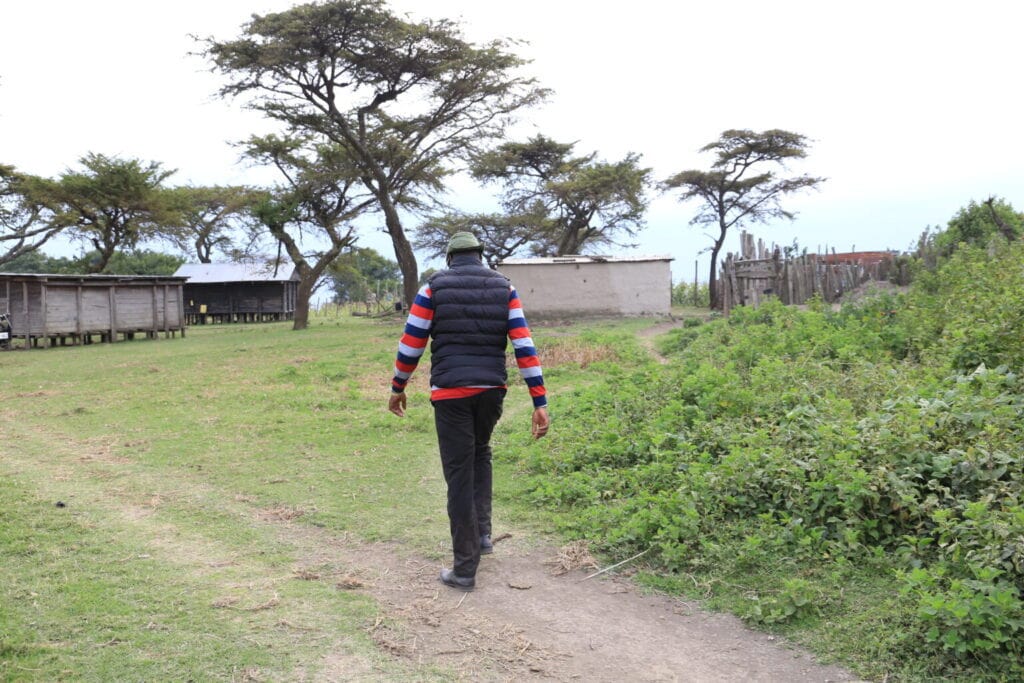
For him, planning is key. He has set days for different activities. “Today was my day for vaccinations.” Two or three times a week, he is in the community ensuring that they are adhering to the recommended health standards. He goes into the manyattas (traditional Maasai houses) to ensure that their houses are well ventilated, have toilets and inhabitants are washing hands regularly.
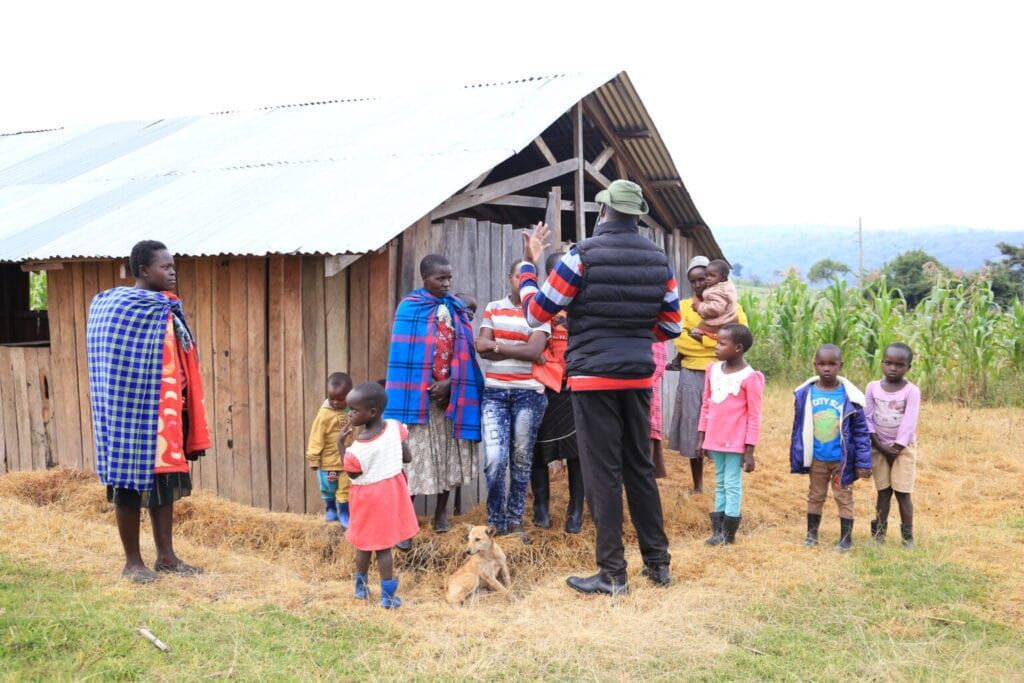
Because of the coronavirus, Mark has to ensure that people are adhering to the government directives. For effectiveness in his community work, his role goes beyond just issues around health. “After a training in a homestead, we take time to socialise. This way, people internalise the message more,” he says. In 2019, Mark won the Maa Mentor of The Year Award for his outstanding work in the community—a community that has to rely on people like him to get access to basic healthcare.
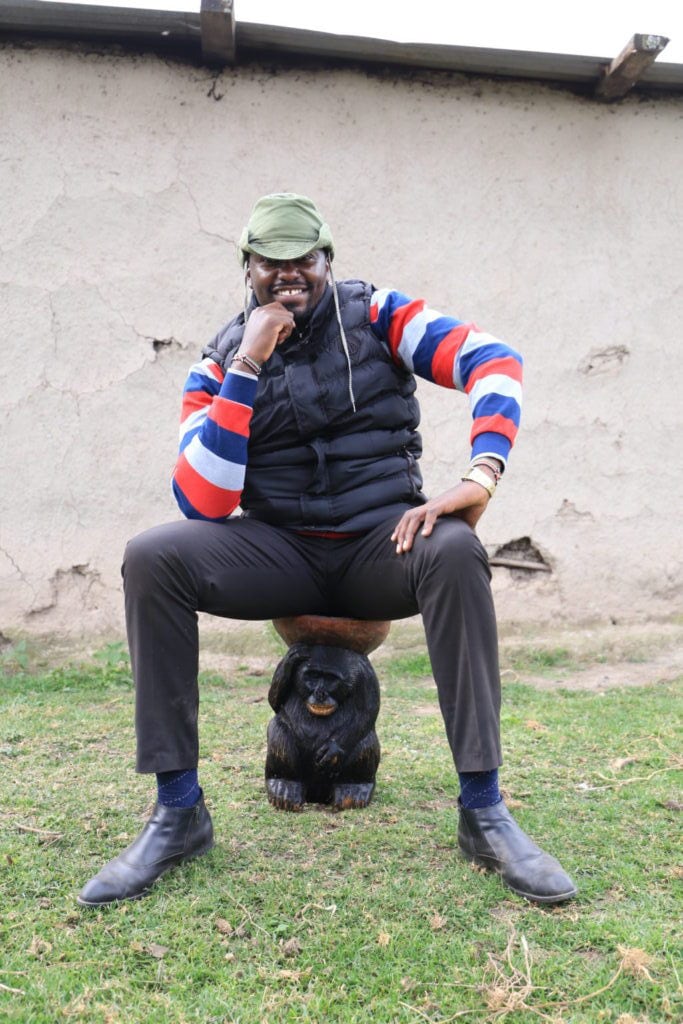
At the end of 2015, Health Action International (HAI) teamed up with Amref Health Africa, the African Centre for Global Health and Social Transformation (ACHEST), Wemos and the Dutch Ministry for Foreign Trade and Development Cooperation to form the Health Systems Advocacy (HSA) Partnership, which ran until the end of 2020.
Throughout this five-year programme, the HSA Partners contributed to stronger health systems that enabled people in Sub-Saharan Africa to equitably access high-quality Sexual and Reproductive Health (SRH) commodities and services. As part of our work on SRH, we contributed to capacity building by equipping civil society actors and health stewards with needed knowledge, technical skills and tools to develop and implement evidence-based advocacy strategies.
Our work in this field drew upon our research and advocacy expertise. In collaboration with our in-country partners, HEPS Uganda, Medicines Transparency Alliance (MeTA) Zambia and MeTA Kenya, we studied the price, availability, and affordability of SRHC in facilities across Kenya, Uganda, Zambia and Tanzania. These findings formed the basis of our advocacy work with our in-country partners. Our blog series “Four Tales from Narok County” shows that there is more work to be done with our in-country partners. Therefore, Health Action International is looking for new funding opportunities to pursue the collaboration with multi-stakeholder platforms and grassroot organisations in their fight for SRH rights.